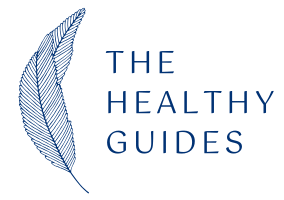Techniques for Stress Management Which Actually Works?
We live in a world that runs on deadlines, pings, and multitasking. Stress is practically built into modern living, but here’s the twist: not everyone finds the classic advice of “just meditate” helpful. Meditation is powerful, yes—but for many people, it’s not the silver bullet. Some find it boring, some can’t focus, and others just don’t feel the benefit. Luckily, there are many stress management techniques beyond meditation—practical tools, habits, and approaches that often work just as well, if not better, depending on your personality and lifestyle..
This article explores practical, science-backed stress management techniques beyond meditation. Think of it as your stress-busting toolkit where you can pick and choose what fits your life best.
Why Meditation Isn’t Always the Answer
Meditation gets a lot of attention—and rightfully so—but it doesn’t resonate with everyone. Reasons include:
- Restless mind syndrome: Sitting still can make stress worse.
- Time pressure: People think they don’t have “20 minutes to just breathe.”
- Cultural mismatch: Meditation is sometimes packaged in ways that don’t appeal to everyone.
- Preference for active methods: Some people find movement more effective.
If you’ve tried meditation and felt like it was chewing gum for your brain (annoying, flavorless, and repetitive), don’t worry. There are plenty of other proven strategies.
The Science of Stress: Understanding the Enemy
Before diving into techniques, let’s get clear on what we’re fighting. Stress isn’t just “feeling overwhelmed.” It’s a biological response:
- The sympathetic nervous system kicks in (fight or flight).
- Cortisol and adrenaline spike.
- Heart rate increases, digestion slows, muscles tense.
Short bursts of stress? Useful. Chronic stress? Dangerous. Long-term exposure can lead to:
- Anxiety, depression
- High blood pressure, heart disease
- Sleep problems
- Weakened immunity
- Memory and focus issues
The goal of stress management isn’t to eliminate stress (impossible) but to regulate your response so stress doesn’t own you.
Technique 1: Physical Movement—Nature’s Reset Button
If meditation is sitting still, exercise is its polar opposite—and often more effective.
Why It Works
- Lowers cortisol levels
- Increases endorphins (“feel-good hormones”)
- Improves sleep quality
- Enhances resilience to future stress
Options Beyond the Gym
- Walking therapy: A brisk 20-minute walk can reset your mood. Bonus points if it’s outdoors.
- Dance: Release tension, channel joy, and forget you’re exercising.
- Strength training: Builds not only muscles but also mental toughness.
- Yoga-inspired stretching: Not meditation-heavy, but physically calming.
Quick Hack
If you’re glued to a desk, try “movement snacks.” Stand up, stretch, do 10 squats, or walk up the stairs. Micro-movements matter, and these small physical resets are some of the simplest stress management techniques you can use throughout a busy day.
Technique 2: Breathwork Without Meditation
Breathing exercises often get lumped in with meditation, but they’re different. You don’t have to “empty your mind”—you just have to breathe with intention.
Powerful Methods
- Box breathing (4-4-4-4): Inhale for 4, hold 4, exhale 4, hold 4.
- 4-7-8 breathing: Inhale 4, hold 7, exhale 8 (great for sleep).
- Physiological sigh: Two sharp inhales, one long exhale—fast stress relief.
Why It Works
Breathwork activates the parasympathetic nervous system, calming your body in minutes.
Technique 3: Stress Journaling—Write It Out
Your brain is like a crowded desk. Writing clears space.
Journaling Approaches
- Brain dump: Write everything on your mind without editing.
- Problem-solution journaling: Write what’s stressing you, then brainstorm next steps.
- Gratitude journaling: Focus on positive aspects to balance stress-heavy thinking.
Benefits
- Reduces overthinking
- Clarifies patterns
- Creates a sense of control
Technique 4: Music Therapy—Press Play, Release Stress
Ever notice how music can change your mood instantly? Science backs this up.
Stress-Busting Music Types
- Slow tempo classical or ambient: Lowers blood pressure and heart rate.
- Nature sounds: Ocean waves, rain, forest—deeply calming.
- Your personal favorites: If Beyoncé pumps you up, that counts too.
Pro Tip
Create two playlists:
- Calm down playlist for relaxation.
- Hype playlist for shaking off stress through energy.
Technique 5: Social Connection—The Human Buffer
Humans are wired for connection, and some of the most effective stress management techniques involve social support. Stress is often magnified in isolation, but talking, laughing, and sharing experiences with others can dramatically reduce its weight.
Why It Works
- Talking releases oxytocin (“bonding hormone”).
- Friends and family provide perspective.
- Laughter literally lowers stress hormones.
Action Steps
- Schedule “friend maintenance” just like you schedule meetings.
- Join groups, clubs, or online communities.
- Call someone instead of texting—it’s more grounding.
Technique 6: Cognitive Reframing—Change the Lens
Sometimes stress is about perception. The same event can feel like a disaster or a challenge depending on how you frame it.
Example
- Old thought: “I’m swamped at work. I can’t handle this.”
- Reframed thought: “This is a chance to prioritize and practice saying no.”
Methods
Ask: “What’s in my control?”
Reframe “I have to” as “I get to.”
Practice self-compassion—talk to yourself as you would to a friend.
Mental Reframing Techniques
Zoom Out Method: Ask yourself, “Will this matter in a week, a month, or a year?”
Silver-Lining Hunt: Identify at least one potential positive outcome from the stressor.
Third-Person Talk: Replace “I can’t do this” with “[Your name] is figuring it out.” Research shows self-distancing language reduces stress.
Stop Catastrophic Thinking Exercises
Catastrophic thinking is when your brain jumps straight to the worst-case scenario.
Evidence Test: Write down the fear, then list actual evidence for and against it.
Probability Check: Ask, “What are the chances this disaster actually happens?”
Plan B Prep: Create a backup plan—just knowing you have one lowers anxiety.
Technique 7: Sensory Grounding
Stress often pulls you into past regrets or future worries. Grounding techniques bring you back to the present.
The 5-4-3-2-1 Technique
- 5 things you see
- 4 things you feel
- 3 things you hear
- 2 things you smell
- 1 thing you taste
Why It Works
Engages your senses to break anxious thought loops.
Technique 8: Progressive Muscle Relaxation
This is like a “stress scan” for your body.
How to Do It
- Start at your toes. Tense muscles for 5 seconds, then release.
- Move up: calves, thighs, stomach, shoulders, face.
- Notice the difference between tension and relaxation.
Benefits
- Relieves physical stress storage
- Enhances sleep
- Increases body awareness
Technique 9: Humor as Medicine
Laughter isn’t just fun—it’s biochemistry.
Benefits
- Releases endorphins
- Lowers cortisol
- Relaxes muscles
- Shifts perspective
Quick Stress Hacks
- Watch a comedy clip during lunch.
- Follow funny social media accounts (memes can be therapy).
- Share jokes with friends—it’s contagious.
Technique 10: Time Management & Boundaries
Sometimes stress isn’t about coping—it’s about prevention.
Tools
- Time blocking: Assign chunks of time to tasks.
- Priority triage: Identify what’s truly urgent vs. noise.
- Boundaries: Saying no is a stress skill.
Example
Instead of multitasking, batch similar tasks together (emails in one block, creative work in another).
Technique 11: Nature Therapy
The Japanese call it shinrin-yoku (forest bathing). Being outdoors reduces stress significantly.
Why It Works
- Nature reduces rumination.
- Sunlight boosts Vitamin D and mood.
- Green spaces lower cortisol levels.
Action Steps
- Take meetings while walking outdoors.
- Spend at least 20 minutes in a natural setting daily.
- Add plants to your workspace.
Technique 12: Nutrition for Stress Resilience
Food doesn’t just fuel your body—it influences mood.
Stress-Reducing Foods
- Omega-3 fatty acids (salmon, walnuts)
- Magnesium-rich foods (spinach, dark chocolate)
- Probiotics (yogurt, kimchi, kombucha)
Avoid
- Excess caffeine
- Processed sugar
- Alcohol (it rebounds stress after the buzz fades)
Technique 13: Sleep Hygiene—The Overlooked Stress Cure
Poor sleep magnifies stress. Stress worsens sleep. Vicious cycle.
Sleep Hygiene Habits
- Stick to a consistent bedtime.
- Use blackout curtains or an eye mask.
- Limit screens before bed.
- Try a “wind-down ritual” (stretching, reading, tea).
Technique 14: Creative Outlets
Creativity isn’t just for artists—it’s stress relief in disguise.
Options
- Drawing, painting, or coloring
- Playing an instrument
- DIY projects
- Cooking or baking
Why It Works
Engages flow state (time disappears, worries fade).
Technique 15: Microbreaks During the Day
Stress often builds from nonstop pushing. Breaks reset the brain.
Ideas
- 5-minute walk
- Drink water mindfully
- Look out a window for 2 minutes
- Do nothing on purpose (gasp!)
Technique 16: Aromatherapy & Environmental Tweaks
Smells are directly linked to the brain’s emotional centers.
Helpful Scents
- Lavender: relaxation
- Citrus: energy and positivity
- Peppermint: focus
Environment Tips
- Declutter your desk
- Use soft lighting instead of harsh fluorescent
- Add calming music or white noise
Technique 17: Guided Visualization
Instead of focusing on breath, you imagine calming scenarios.
Example
Close your eyes and picture:
- A beach, waves, and sun warmth.
- A forest trail with birds chirping.
- Yourself succeeding in a future goal.
The brain responds as if you’re actually there.
Technique 18: Random Acts of Kindness
Helping others surprisingly helps you.
Why It Works
- Shifts focus away from personal worries
- Boosts oxytocin and dopamine
- Builds a sense of purpose
Easy Ideas
- Compliment someone genuinely
- Pay for the person behind you in line
- Volunteer or donate time
Technique 19: Digital Detox
Our devices can fuel stress through notifications, doomscrolling, and constant comparison.
Detox Steps
- Disable non-essential notifications
- Take “phone-free” hours daily
- Do social media audits—unfollow negativity
Technique 20: Therapy & Professional Help
Sometimes stress requires external support.
Options
- Cognitive Behavioral Therapy (CBT)
- Stress coaching
- Support groups
- Medication (if prescribed)
There’s strength in seeking help, not weakness.
Choosing Your Stress Toolkit
Not every technique works for everyone. The key is experimentation.
Step 1: Identify Triggers
Is it workload, relationships, finances, or health?
Step 2: Match the Technique
- Physical stress → movement, muscle relaxation
- Mental stress → reframing, journaling
- Emotional stress → social support, humor
- Sensory overload → grounding, nature therapy
Step 3: Make It Sustainable
Pick one or two strategies, integrate them daily, then add more over time.
Final Thoughts
Meditation is powerful—but it’s not the only way to tackle stress. Effective stress management techniques can also include exercise, breathwork, journaling, humor, music, nature, sleep, nutrition, and more. The best technique is always the one you’ll actually use consistently in your daily life.
Stress may be inevitable, but being controlled by it is optional. Think of these techniques as your personal menu. Try different flavors, see what satisfies your mind and body, and build your own stress-proof lifestyle.
FAQs on Stress Management Beyond Meditation
1. Why doesn’t meditation work for everyone?
Meditation is powerful, but not everyone finds it effective. Some people struggle with sitting still, have restless thoughts, or simply prefer active stress relief. That’s why exploring alternative stress management techniques is so important—because stress management isn’t one-size-fits-all.
2. What are quick stress relief techniques I can use at work?
- Box breathing (4-4-4-4)
- A 5-minute walk outside
- Listening to calming music
- Stretching at your desk
- Writing down stressful thoughts on a notepad
3. How can I manage stress if I don’t have much free time?
You don’t need an hour-long ritual. Try “micro-practices” like movement snacks, grounding exercises, or even a short gratitude list. These small, consistent stress management techniques can create a big impact over time.
4. What physical activities reduce stress the fastest?
Any activity that raises your heart rate and gets you moving can help—walking, dancing, cycling, or even a few jumping jacks. Bonus: being outdoors makes it even more effective.
5. Can food really help with stress?
Yes! Foods rich in omega-3s, magnesium, and probiotics can improve mood and reduce stress. On the flip side, too much caffeine, alcohol, or processed sugar can increase anxiety.
6. How does laughter reduce stress?
Laughter lowers cortisol, relaxes muscles, boosts endorphins, and helps shift perspective. It’s one of the most fun and underrated stress management tools.
7. What’s the difference between meditation and breathwork?
Meditation often involves focusing the mind or achieving mindfulness, while breathwork is about deliberately controlling your breathing patterns. Breathwork works quickly and doesn’t require emptying your thoughts.
8. How can sleep hygiene affect stress?
Poor sleep worsens stress responses, while quality sleep restores balance. Simple habits like consistent bedtimes, screen-free evenings, and a relaxing wind-down routine make a huge difference.
9. Are grounding techniques really effective?
Yes! Grounding brings you back to the present moment when stress pulls you into overthinking. The 5-4-3-2-1 technique (naming things you see, hear, feel, smell, taste) is particularly effective.
10. When should I consider professional help for stress?
If stress is constant, overwhelming, or affecting your health, relationships, or work, it’s time to reach out. Therapists, counselors, or doctors can provide structured support and strategies.
Your brain needs fuel too—learn how the right diet can boost your mood and energy in our healthy eating guide.”
For more tips and support, visit our Facebook page.







